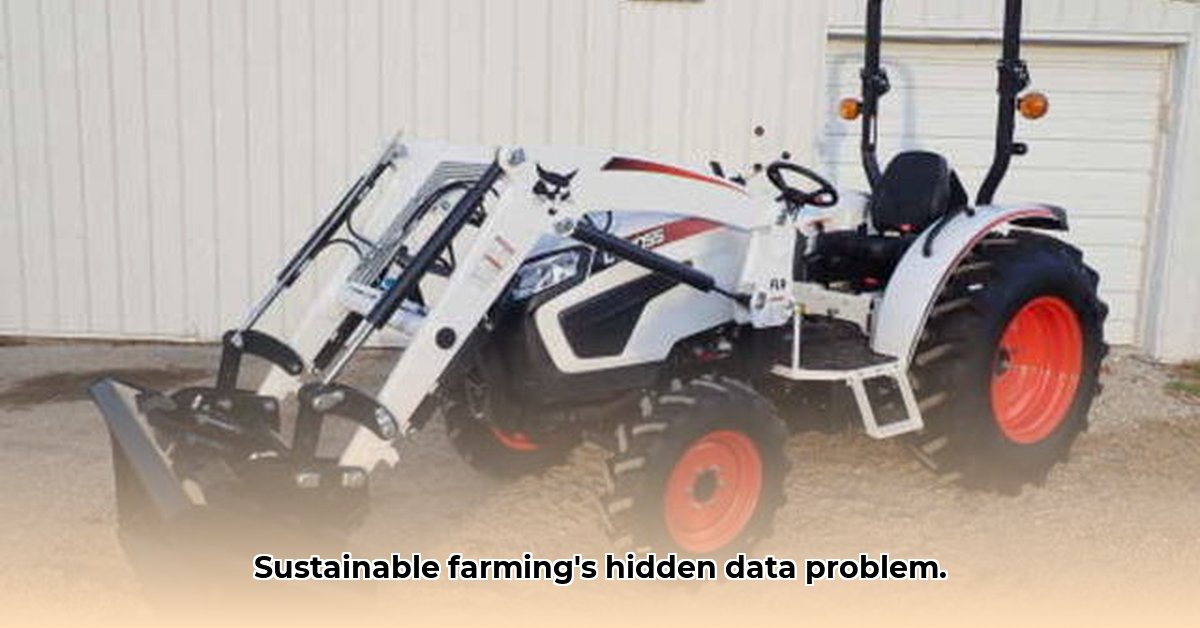
The Urgent Need for Data in Sustainable Agriculture
My initial goal was to detail Midstate Tractor CT's contribution to sustainable agriculture. However, a significant obstacle emerged: a pervasive lack of accessible, reliable data. This data gap isn't unique to Midstate Tractor CT; it's a systemic issue hindering progress across the entire field of sustainable agriculture. This article examines this critical data deficit, its far-reaching consequences, and actionable steps to address it.
The Scope of the Data Deficiency
Sustainable agriculture relies on robust data, yet significant information is missing. This impacts our understanding of the effectiveness of various practices. For example, we need more comprehensive yield data from different farming techniques to compare their productivity. Similarly, precise resource consumption metrics—water, fertilizer, energy—are often unavailable, preventing accurate assessments of environmental impact and economic efficiency. This absence of concrete information makes it incredibly difficult to demonstrate the benefits of sustainable agriculture and attract the crucial investment it needs.
Broader Impacts of the Data Gap
The consequences of this data deficiency extend far beyond individual farms. The lack of reliable data significantly affects various stakeholders:
Researchers: Limited data hampers the development of evidence-based sustainable agricultural practices. The inability to rigorously analyze data makes it challenging to draw reliable conclusions and create effective strategies.
Policymakers: Accurate data is crucial for crafting effective agricultural policies. Absent this critical information, policy decisions risk ineffectiveness or even unintended negative consequences, impacting both farmers and consumers.
Investors: The absence of demonstrable environmental and economic benefits from sustainable agriculture methods deters investment, hindering innovation and slowing the shift towards environmentally friendly farming.
Farmers: Without reliable data demonstrating the financial and environmental advantages, farmers may be reluctant to adopt sustainable practices, slowing the adoption of beneficial technologies and methods.
This data gap isn't merely about numbers; it's about the future of global food security and environmental sustainability.
Actionable Steps to Bridge the Data Gap
Addressing this critical data shortage requires a concerted effort from various stakeholders. This includes short-term and long-term actions, categorized by actors:
Researchers: (Short-term) Develop standardized data collection protocols and fund pilot studies focusing on data collection. Collaborate on open-source data repositories. (Long-term) Conduct large-scale, long-term studies evaluating the environmental and economic impacts of sustainable practices; create predictive models of sustainability.
Ag Tech Companies: (Short-term) Invest in sensor technologies and user-friendly data management systems for farmers. (Long-term) Develop integrated data platforms connecting farmers, researchers, and policymakers; invest in research improving data collection accuracy.
Government Agencies: (Short-term) Fund data collection projects, incentivize data sharing, and establish common data standards. (Long-term) Establish national (or international) sustainable agriculture data centers and implement policies mandating timely, accurate data reporting.
Farmers: (Short-term) Participate in data collection initiatives, adopt digital farm management tools. (Long-term) Embrace data-driven decision-making to improve farm efficiency and sustainability; share their data (anonymously if needed) to contribute to larger datasets.
Conclusion: Data—The Key to Sustainable Agriculture's Future
Remedying the data deficit isn't simply about improving research; it's about securing a sustainable future for food production. The potential benefits of improved data collection and sharing are enormous. By fostering collaboration and investment in data infrastructure, we can unlock the full potential of sustainable agriculture, ensuring a secure and environmentally responsible food supply for future generations.